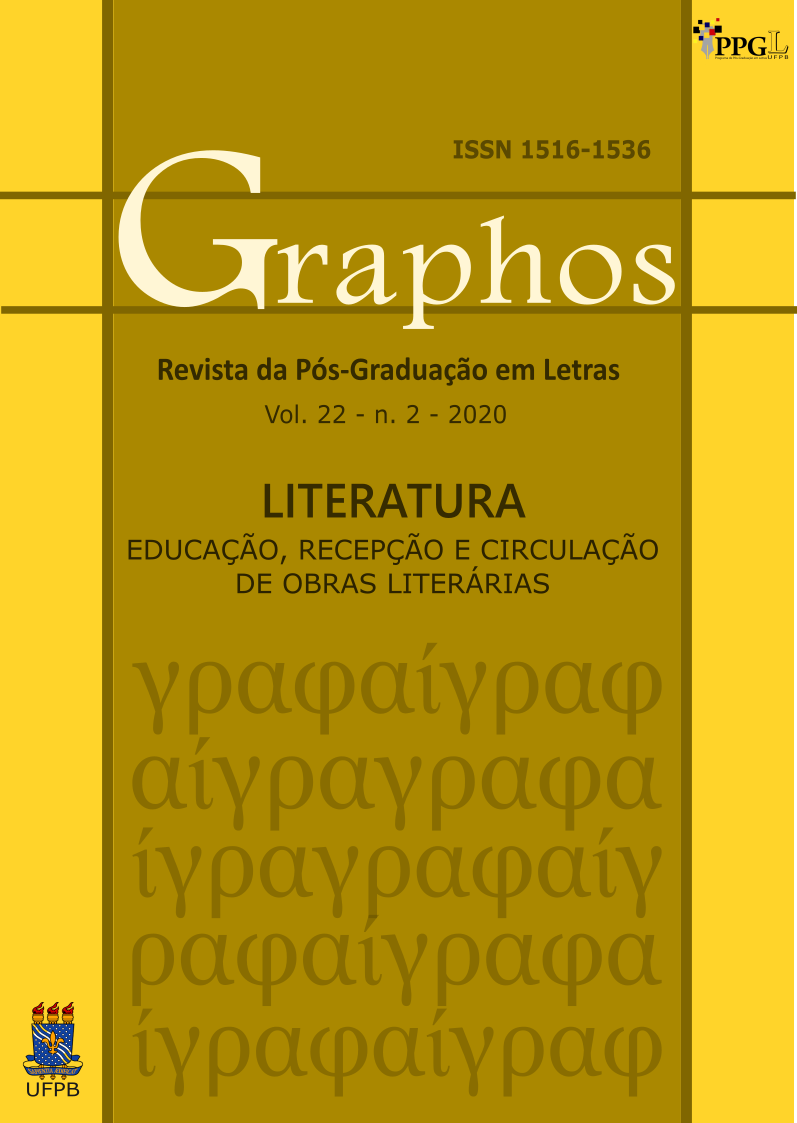What do external evaluation results reveal about literature teaching in teacher training?
DOI:
https://doi.org/10.22478/ufpb.1516-1536.2020v22n2.52473Keywords:
Literature teaching, Reader Formation, Literature Evaluation, ENEMAbstract
This paper presents the analysis of two practices of assessing literature that has achieved good performance in external evaluations. They were carried out at a public and a private high schools in the State of Paraná, Brazil. Results show that good outcomes do not necessarily mean good practices in literature teaching if these are understood as the ones that are meaningful in the formation of anarchic readers, i.e., the reader who can read from the inherent contradictions of the world and of man. Excellent performance at the National High School Exam (ENEM) was surprising, because teaching literature in high schools has constantly been challenged as young people are often considered not to like to read books assigned by their teachers. The survey included categories such as the operationalization of literary practices, teachers´ academic education, teachers’ and students’ profiles, as well as their relationships with reading and with literature teaching and practice. Sharing pedagogical practices that mediate literary reading can help to establish meaning in literature teaching, specially to form anarchic readers. Such practices allow students and teachers to encounter some awareness moments, making them meaningful as well as comfort and humanizing spaces in a chaotic, empty and fast world.
Downloads
References
CCANDIDO, A. A literatura e a formação do homem. Ciência e Cultura, São Paulo, SP, v. 24, n. 9, p. 803-809, set. 1970.
CEREJA, W.R. O dialogismo como procedimento no ensino de Literatura. In: ______. Ensino de Literatura: uma proposta dialógica para o trabalho com a literatura. São Paulo: Atual, 2005, p.162-195.
DEMO, P. Pesquisa e construção do conhecimento: metodologia científica no caminho de Habermas. Rio de Janeiro: Tempo Brasileiro, 1994.
FERNANDES, A. S. Processo penal constitucional. 4. ed., Rev., atual. e ampl. São Paulo: RT, 2005.
PETRUCCI, A. Ler por ler: um futuro para a leitura. In: CHARTIER, R& CAVALLO, G. História da leitura no mundo Ocidental. São Paulo: Ática, 1999.
PORTANOVA, R. Princípios do processo civil. 4. Ed. Porto Alegre: Livraria do Advogado, 2001.
TARDIF, M. Saberes docentes e formação profissional. Petrópolis: Vozes, 2002.
ZIZEC, S. Como ler Lacan. Rio de Janeiro: Zahar, 2010, 146p.
Downloads
Published
Issue
Section
License
Copyright (c) 2020 Revista Graphos

This work is licensed under a Creative Commons Attribution 4.0 International License.







